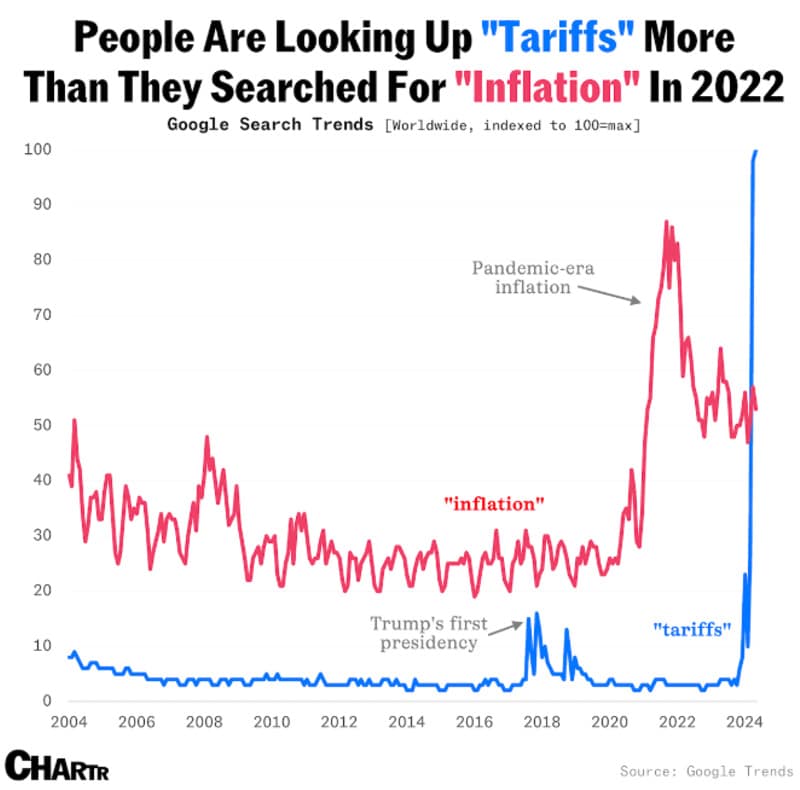Trump’s tariffs can, to some degree, be seen as the straw that broke the camel’s back. Despite some good economic data, such as relatively strong job numbers for February (228,000 jobs added vs economist estimates of 140,000), multiple other indicators had turned negative over the past couple of weeks. Consumer sentiment has seen sharp declines, both in high- and low-income households, hitting a 4-year low. This weakening sentiment also became evident in lower-than-expected retail sales, US airlines drastically reducing their revenue forecasts, and US car owners missing their monthly payments at the highest rate in more than 30 years. The number of consumers worried about losing their jobs has also skyrocketed in recent weeks and now sits at levels normally associated with recessions. Small business uncertainty, meanwhile, sits at levels last seen when the survey began in the 1970’s. Notably, these small businesses account for nearly 80% of US employment.
Markets were also not soothed by neither Trump nor Treasury Secretary Scott Bessent ruling out the possibility of a recession, with both simply stating that the US is in a period of transition. Major banks also seem to think a recession is looming. Goldman Sachs have increased the odds of a recession over the next 12 months to 35%, their second increase in a week. JP Morgan, meanwhile, sits at a 60% chance of a recession. While these numbers might seem high, it is worth noting that not too long ago, most major banks were sitting at 100% odds for a recession that never materialized.
On the geopolitical front, there was also no absence of headlines. Donald Trump and Volodymyr Zelensky had a very public falling out, leading to the US briefly suspending all weapon and information sharing with Ukraine. Trump also reiterated his calls for Greenland to become part of the USA, going as far as stating “we will get it one way or another”. In the Middle East, the fragile ceasefire between Israel and Hamas came to an abrupt halt, while in Europe, the German parliament passed a bill loosening its borrowing limit and unleashing a $547 billion fund to boost its military.
Local markets fared better than their global peers. The ALSI was up 3.6% for the month, with the resources index rising by a staggering 18.55%.
There was good news from a CPI standpoint, as it remained at 3.2% YoY in February, lower than estimates of 3.4%, and well below the mid-point of our target range. Still, the reserve bank chose to keep borrowing rates constant, despite their own internal inflation forecasts decreasing. This hawkish stance keeps standing in the way of lower rates leading to higher economic growth, something we desperately need.
On the bad news front, the GNU is teetering on the brink as the DA and ANC could not come to terms on a budget framework, with the ANC looking outside the alliance for support in passing its budget. This led to the Rand taking a beating, and bond yields rising, as perceived political risks increase.




















